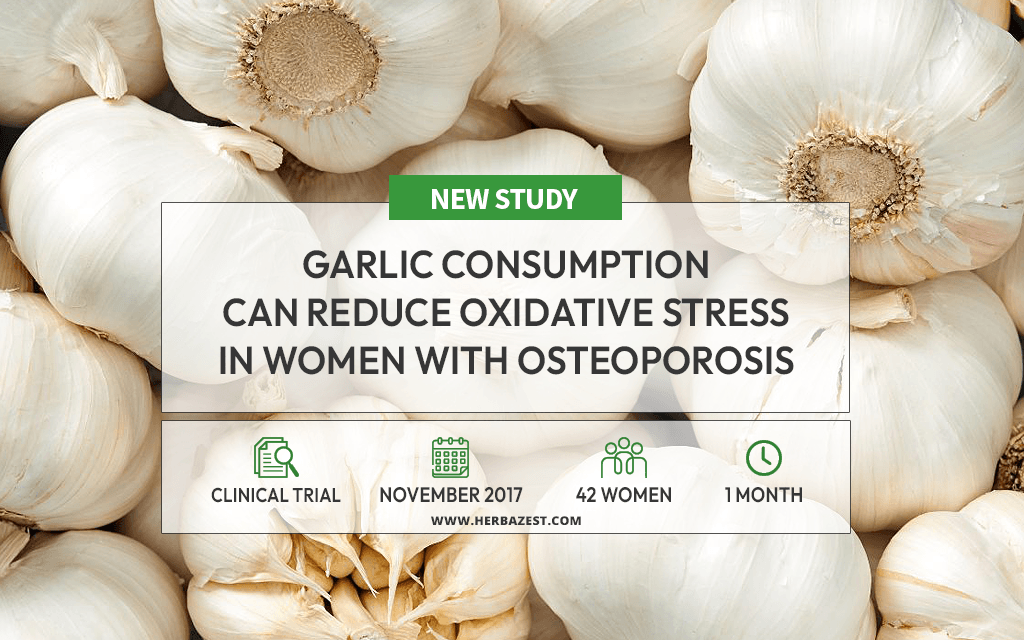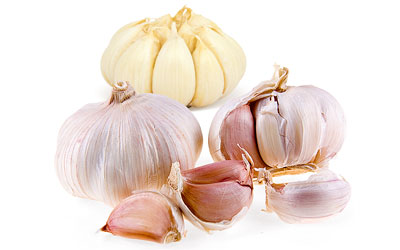The risk of osteoporosis increases with age, and it is particularly prevalent in women who have gone through menopause. Alongside estrogen decline, studies have shown that high oxidative stress may play a role in bone density loss.1
As one of the most potent antioxidant herbs, garlic has been studied with great results for its effects on reducing oxidative stress.2 It is also a good source of phytoestrogens, which may provide additional health benefits.
The purpose of this study was to evaluate the effects of garlic consumption on oxidative stress in postmenopausal women with osteoporosis.
The Study
In this randomized clinical trial, researchers at the Iranian Shahid Sadoughi University of Medical Sciences recruited 42 postmenopausal women with osteoporosis. They were between the ages of 45 and 65 years.
There were two types of regimens given to participants: the treatment group received two garlic tablets a day (1,200 μg of allicin equal to 2 g of fresh garlic), whereas the control group was given the placebo tablets daily. Both tablets were taken for one month.
Once the intervention was finished, various markers of oxidative stress were measured in all participants.
The Results
After one month of taking garlic tablets, women's oxidative stress biomarkers significantly improved, including a decrease in the plasma levels of carbonyl groups, a decrease in advanced oxidation protein products, an increase in total antioxidant capacity, and a decrease in malondialdehyde.
There were no considerable changes in women taking the placebo tablets.
What Does this Mean?
As shown by the results of this clinical trial, garlic consumption can reduce oxidative stress in women with osteoporosis.
These results present evidence to consider garlic as a complementary addition to osteoporosis treatment and prevention, particularly in susceptible populations like postmenopausal women.
Other herbs that can reduce oxidative stress are cacao, green tea, and turmeric.
Sources
- Electronic Physician, The effect of consumption of garlic tablet on proteins oxidation biomarkers in postmenopausal osteoporotic women: A randomized clinical trial, 2017
Footnotes:
- Indian Journal of Medical Research. (2018). Oxidative stress as a possible pathogenic cofactor of post-menopausal osteoporosis: Existing evidence in support of the axis oestrogen deficiency-redox imbalance-bone loss. Retrieved February 16, 2021 from https://www.ncbi.nlm.nih.gov/pmc/articles/PMC6057254/
- BMC Complementary Medicine and Therapies. (2012). Garlic extracts prevents oxidative stress, hypertrophy and apoptosis in cardiomyocytes: a role of nitric oxide and hydrogen sulfide. Retrieved February 16, 2021 from https://www.ncbi.nlm.nih.gov/pmc/articles/PMC3519616/





